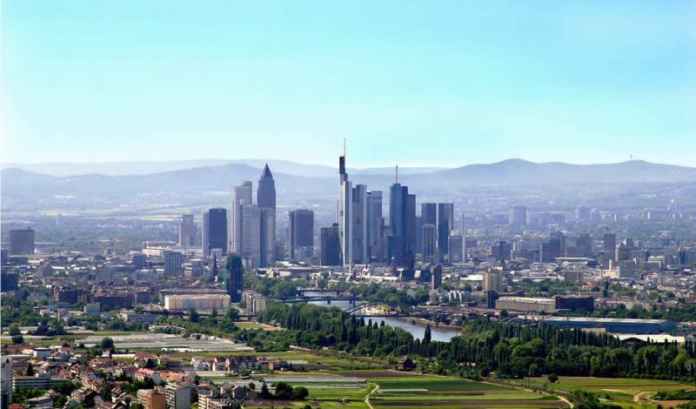Frankfurt is a city of contrasts. Wealthy bankers, students and granola drop-outs coexist in a city that has some of the highest, most avant-garde skyscrapers of Europe next to well maintained old buildings. Located on the river Main, Frankfurt is the financial capital of Continental Europe and the transportation center of Germany. Frankfurt is the place where Germany’s major autobahns and railways intersect.
Frankfurt is the heart of central Germany and as such, it is the national transportation hub. It has excellent connections by rail, road and air so reaching and leaving Frankfurt is quite easy.
Peak season:
During the winter, skies are almost always covered in clouds and the weather is coldest in January. During this time of the year temperatures range between -10 and 10 degrees Celsius (14 and 40 degrees Fahrenheit). If you’re in town during the winter season you will need rainproof and warm clothing.
Otherwise Frankfurt experiences a mild weather around the year. Hot and sunny summers and can also be a little on the moist side, with slightly elevated levels of humidity. Windy weather can also make the climate feel considerably colder on occasion, adding a definite chill factor to the air.
Sights of Attraction
The Main Tower: If you want to explore Frankfurt to its fullest there is no better way than the “Main Tower”. To enjoy the sweeping views of Frankfurt’s skyline, you can either take the elevator up to the viewing platform or enjoy a cocktail and meal at the Main Tower bar and restaurant, located on the upper floor of the tower. The Main Tower(650-feet) is not the highest skyscraper in Frankfurt but it is the only one open to the public. The restaurant offers international cuisine and 26 feet panoramic high windows.
The Goethe House: This is actually the house in which the legendary writer Johann Wolfgang von Goethe lived his early years has been restored with many of his family’s original belongings. Although Goethe’s house was destroyed in World War II, it was fully restored with the original furniture, paintings and books of the family Goethe. Take inspiration from the writing desk, where Goethe wrote The Sorrows of Young Werther
.
Stadel Museum: Originated nearly 200 years the Städel Museum is one of the most famous art institutions in Germany, with its venerable collection of old masters. On Wednesday, the museum celebrates the opening of the underground 3,000-square-meter (32,000 square feet) extension for postwar art. Aside from the skylights in the grassy courtyard, the addition is not visible from the outside, but inside it is imposing.
Place to change money in Frankfurt:
One can change money at airports, banks, travel agencies, and at major hotels; the latter generally have the worst rates. It is always a good idea to travel with some foreign currency and picking up some euro before arriving in Spain, if you come from a country that hasn’t got the euro, is recommended.
Many tourists nowadays simply withdraw local currency via ATMs using their debit card, or even their credit card, and an increasing number of banks make this possible throughout Spain. Look for participating schemes, like Switch and Maestro, Visa, and MasterCard. Although you may be charged a nominal amount by your bank, and possibly the bank you are withdrawing cash from, the banks utilize the commercial exchange rates, meaning a better deal.
Clothes to wear:
Weather in Europe is never really predictable, so you will have to check the forecast at the last moment and still be flexible about it. Young people will wear jeans, T-shirt, sweater and a light jacket on mild days but still use their wintercoat if the weather is chilly. It is unlikely to be freezing during the day, but it can still be pretty cold in the night, and Europe is having a cold winter this year, so you might be getting a late cold spell as well. If you do not like jeans you can choose your clothing about as warm.
Legal Cautions:
Visa and other entry and exit conditions (such as currency, customs and quarantine regulations) change regularly. Contact the nearest Embassy or Consulate of Germany for the most up to date information. People traveling directly to or from a country outside the European Union (EU) who are carrying 10,000 euros or more (or the equivalent amount in another currency) are required to declare the cash at the place of their arrival or departure from the EU.
Make sure your passport has at least six months’ validity from your planned date of return. You should carry copies of a recent passport photo with you in case you need a replacement passport while overseas.













